Local Legend: Shona Sangster - Stewart Island gets under your skin
Sue Fea © the Southland App
31 March 2025, 6:54 AM
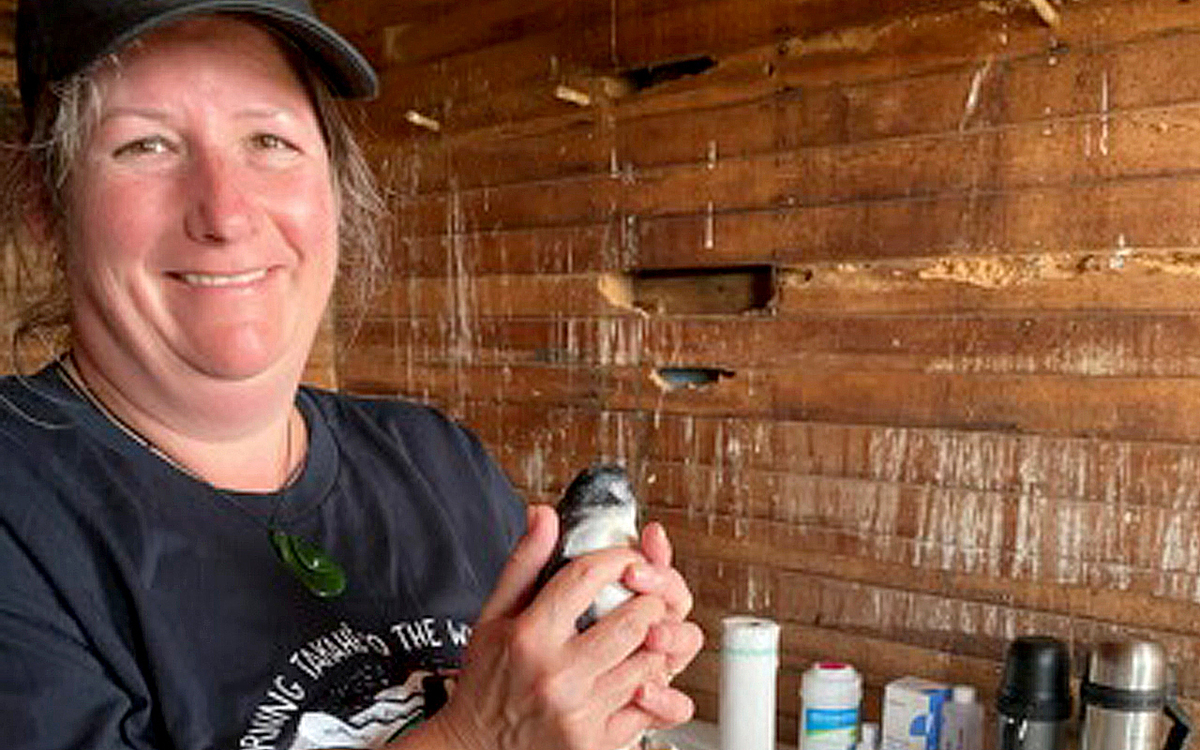 Shona Sangster helps feed a Whenua Hou diving petrol/Kuaka. Photo: Supplied
Shona Sangster helps feed a Whenua Hou diving petrol/Kuaka. Photo: SuppliedA born and bred ‘Westie’ growing up at remote Anawhata near Auckland’s Piha Beach, the Waitakere Ranges at her doorstep, Shona Sangster was always bound to end up in the bush, by the sea, protecting the planet, and saving rare species.
Instead of Sunday drives, Shona grew up roaming West Coast beaches with her avid Forest and Bird conservationist parents looking for dead birds and documenting their finds.
As a child conservation was already instilled in Shona – a member of Forest and Bird’s Kiwi Conservation Club for kids.
With a Master of Arts in Philosophy from Auckland University you’d think Stewart Island and its wild coastal spaces were a long way from home.
But for the past 10 years they’ve been home, and you won’t catch Shona – a passionate tramper, diver, fisherwoman, beekeeper, conservationist and community advocate leaving any time soon. “Stewart Island gets under your skin,” she smiles.
Within a few years of moving to the Island to be with partner Ben Hopkins – a fifth generation Islander, Shona had been co-opted onto a myriad of conservation trusts and groups.
She’s now chair of the Stewart Island-Rakiura Community and Environment Trust (SIRCET) which controls predators on 310ha of land on Acker’s Point and Horseshoe Peninsulas.
Five years ago, she was appointed chair of the Southland Conservation Board which meets around the province six times a year.
Stretching from the Sub-Antarctic Islands and Stewart Island through to Slope Point in the Catlins, and including Fiordland National Park, Southland’s area is the biggest of all of NZ’s conservation boards.
Thrown in the deep end, after outgoing chairman John Whitehead approached her to take over at 41, Shona says it’s been “very full on” but extremely rewarding.
“My leadership is a different style to others. I believe you’ve just got to be yourself,” she says.
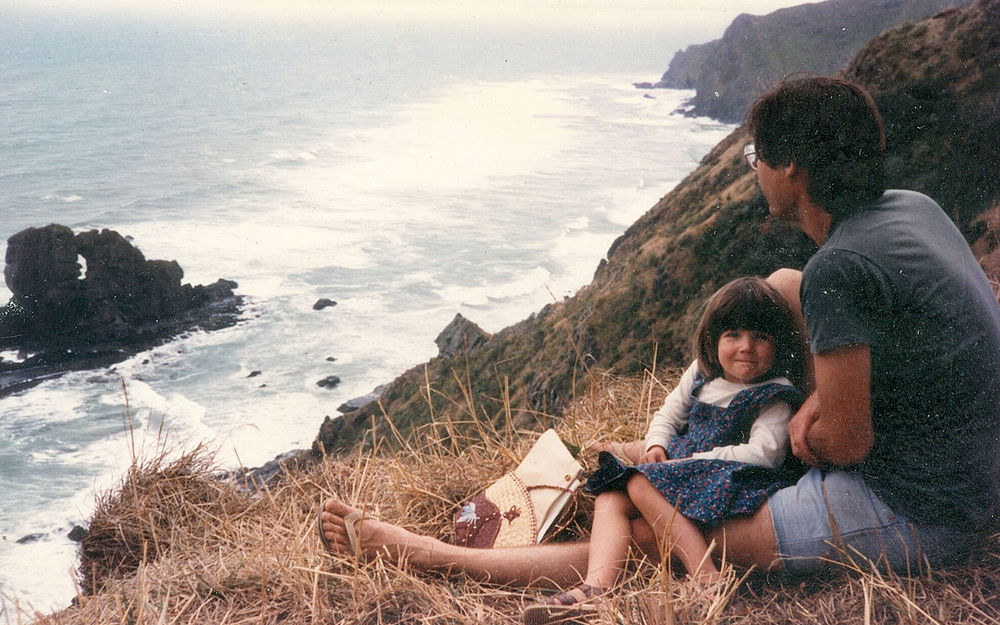
A young Shona, with her father, at Anawhata, near Auckland. Photo: Supplied
When you live on Stewart Island you’ve got to adopt a bit of Kiwi No.8 wire, ‘can do’ mentality.
“There’s no point in wishing you had something you haven’t got so you get on with it and make the best of what you do have,” Shona says.
Also volunteering as cook for DOC’s Kākāpō Recovery Programme, mostly on Whenua Hou/Codfish Island, Shona assures she can rustle up a feed in the bush no problem.
Even the kākāpō eat macadamia nuts from her hand.
She’s also volunteered for DOC on its Southern NZ Dotterel/Pukunui Recovery Project at Mason Bay on the Island and Awarua Bay and was also a strong advocate on the Southland Aquaculture Reference Group when islanders opposed a salmon farm proposed at Port Pegasus, and won.
“I suppose I’m a voice for the community,” she laughs.
“They poke me with a stick and send me out front.”
Shona’s also a huge supporter of Predator Free Rakiura, which is aiming to rid the island of rats, possums and cats – an extension of the work SIRCET has been doing for 22 years, Shona often there on the frontline setting traps.
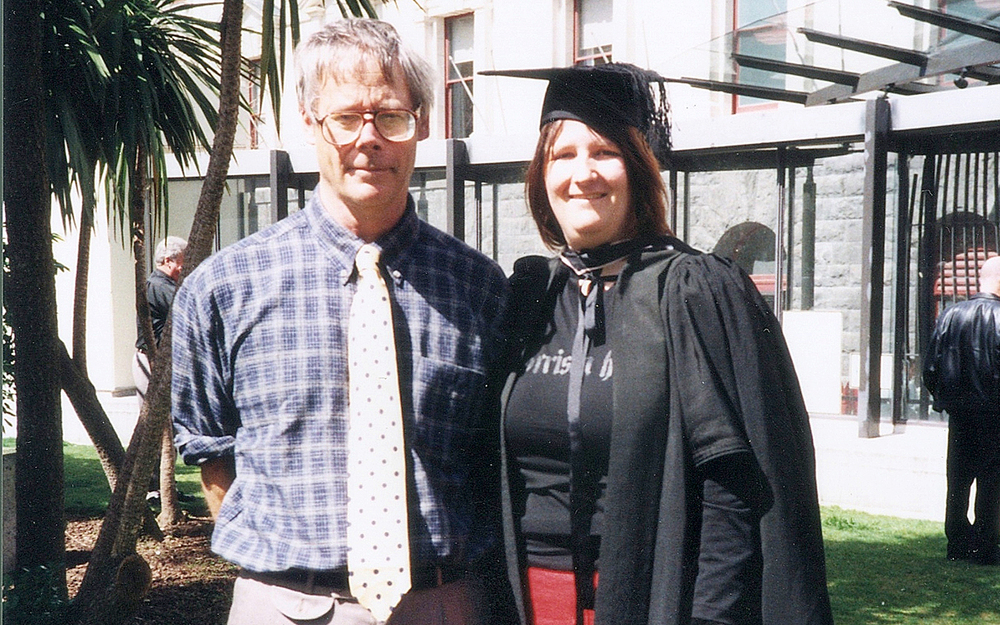
Shona and her father at her university graduation. Photo: Supplied
“You can’t let your foot off the gas with these programmes,” she says.
It’s all stuff her grandparents and parents would be, and are, proud of. Shona, an only child, recalls having to stay with her grandmother once, aged five, while her parents did a stint volunteering on the Chathams, working to save one of NZ’s rarest birds, the taiko (magenta petrel).
The third musketeer wasn’t impressed at being left behind.
Growing up amongst the Bohemian West Auckland artist community, Shona’s schooling was in Oratia then Henderson High where she developed a love of writing and literature.
She had a forward-thinking principal for the 90s, her school running a Māori language immersion unit, Pasifika language nests and a teenage mums’ education programme, complete with creche.
“I learned a lot about understanding the diversity of people’s experiences and creating a structure to meet people’s needs, rather than telling them what they need,” Shona says.
At uni her activist muscle was flexed, Shona joining political movements and protests.
“Many of the campus student politicians from my day are now actual politicians.”
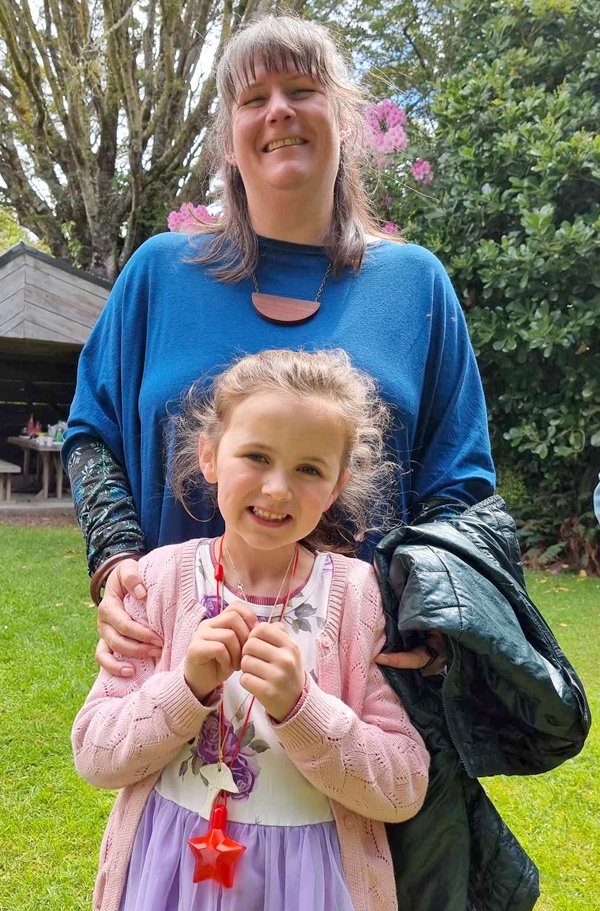
Shona Sangster with one of her nieces. Photo: Supplied
Uni was so good that she ended up working there in admin for a few years.
The OE had partially been achieved – Shona’s dad was an Air NZ avionics engineer so the family flew for free, holidaying in the USA, UK, Aussie and Canada.
“Dad was a ham radio enthusiast, so we’d end up in random places like Boise, Idaho, at ham radio meets, Mum guiding us with her large road map and no sense of direction.”
Shona’s Scottish grandmother had travelled widely with her university professor husband, but hadn’t been permitted into the Soviet Union with him.
“She’d always wanted to go and maybe that piqued my curiosity,” Shona says.
At 26, Shona set off for two years teaching English in Russia, having already done two short uni exchanges to Moscow.
“The Rule of Law there was a bit of a shock,” she says.
“We take for granted how honest our Police system is.”
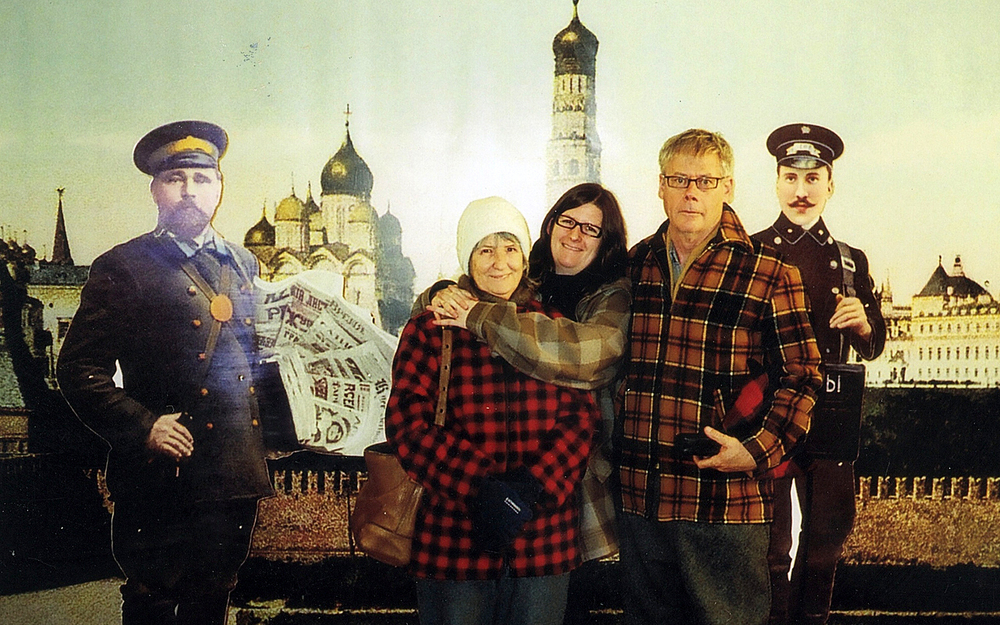
Shona and her parents. Photo: Supplied
The internal visa system meant her documents were regularly checked as she moved between locations.
“I’d keep a 100 Ruble note hidden in my passport then when they checked it they’d take the 100 Rubles and nothing was said,” she says.
“It was pretty shocking for a little Kiwi girl, but once you got to know the Russians they were very kind.”
She missed the ocean, the warmth and openness of Kiwis, and the safety of home, so it was back to Auckland to teach English where she met Stewart Islander Ben, then in the Merchant Navy, his father a fourth-generation fisherman.
It didn’t take long to convince Shona to move south and before long she was co-editing the Stewart Island News.
Her co-editor Jess Kany got press accreditation for Prince Harry’s visit in 2005.
While the old hacks from the notorious British tabloids, The Mirror and The Sun, looked down their noses at their small-town colleagues, Harry came to the pub with the locals and won the weekly quiz.
Shona even got to share her environmental interests with him in the community hall.
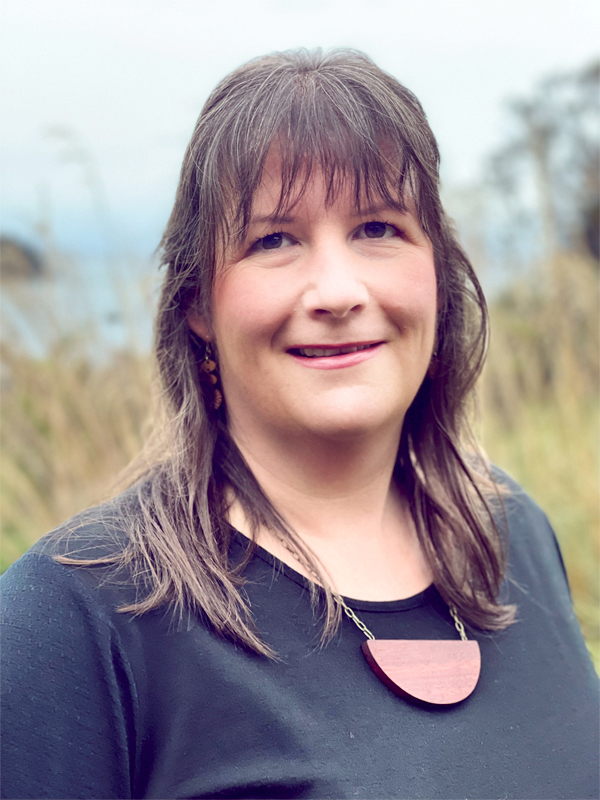
Shona Sangster. Photo Laire Purik/Supplied
Prince Harry’s Land Rover had been pulled apart for the two-day visit, then put back together, just to ensure nobody had planted explosives in it on the boat over.
“It was all quite surreal,” Shona recalls.
“A bloke stepped outside a function at the community hall for a pee, looked up and his eyes locked with a security sniper. Iroquois were flying about everywhere.”
Since then, she’s worked at the local council office-library and Glowing Sky Merino.
Regularly gathering paua, scallops, mussels and blue cod, Shona had thought she didn’t like fishing.
“That was sitting in a boat in the Hauraki Gulf for four hours catching nothing, but this is not like Auckland,” she says.
“You can go out and get a feed and be home in an hour.”
Just as well, as she’s still got to make time for her beekeeping, print making art, which she exhibits, and tramping with the girls.
And when it’s time to wind down, there’s always a homegrown Third Island gin, infused with local botanicals, courtesy of Ben and his Rakiura Distilling Company business partners.
Life really is a beach.